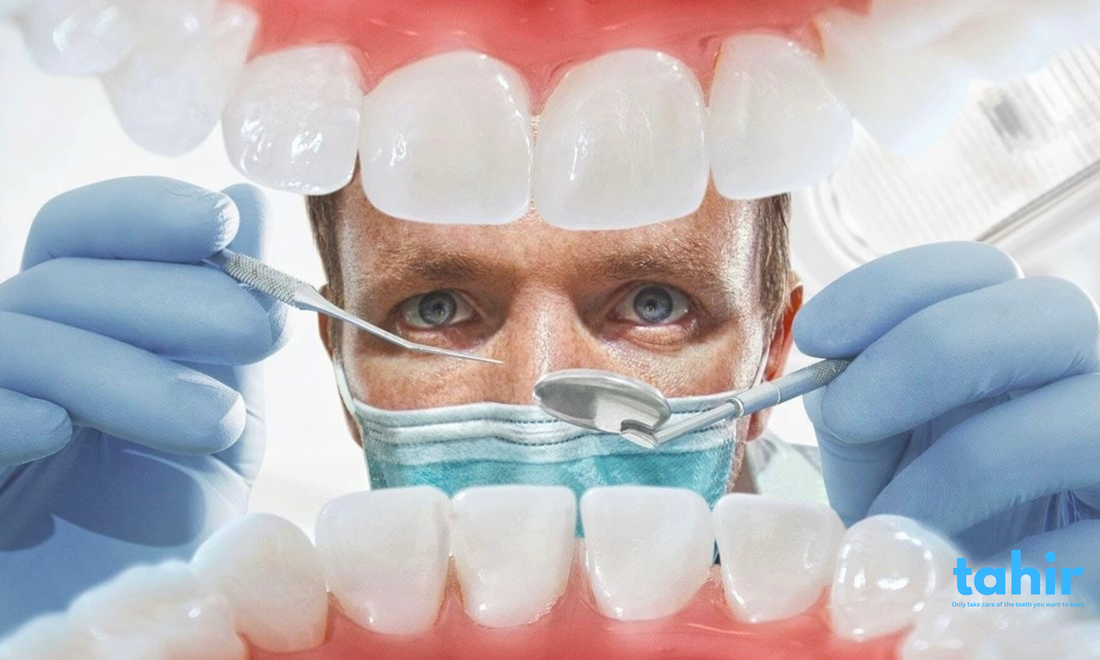
9 Signs That You Need to See Your Dentist
Maintaining regular dental checkups is crucial for ensuring good oral health, but many people only visit the dentist when they experience pain or discomfort. However, waiting until a problem arises can make treatment more difficult and costly. Preventive care is always better than reactive treatment, and catching dental issues early can save you from more serious complications down the road.
In the UK, the NHS recommends seeing a dentist every six months, but between those appointments, it’s important to know when something might be wrong.
1. Persistent Tooth Pain
Tooth pain that won’t go away is one of the most obvious signs that you need to see a dentist. Toothaches can be caused by various issues, from cavities to infections. If you experience sharp or throbbing pain, especially when chewing or consuming hot or cold foods, it’s important to have your dentist check it out.
Ignoring tooth pain can lead to more severe problems, such as abscesses or even tooth loss, so don’t delay in seeking treatment.
2. Bleeding Gums
Gums that bleed during brushing or flossing may indicate gingivitis, the earliest stage of gum disease. Healthy gums should not bleed, so if you notice blood in the sink after brushing or flossing, it’s time to book a dental appointment. If left untreated, gingivitis can progress to periodontitis, a more severe form of gum disease that can cause tooth loss and damage to the supporting bone.
Early treatment can reverse gum disease, so it’s essential to catch it before it becomes a bigger issue.
3. Receding Gums
If your gums are starting to pull away from your teeth, creating a “longer” tooth appearance, this could be a sign of gum recession. Gum recession can expose the roots of your teeth, making them more sensitive and vulnerable to decay and infection. It’s also a common sign of advancing gum disease.
Seeing a dentist promptly can help address the underlying cause and prevent further damage to your gums and teeth.
4. Tooth Sensitivity
Do you feel a sharp, uncomfortable sensation when eating hot, cold, or sugary foods? Tooth sensitivity is often caused by exposed dentin (the layer under your enamel) or gum recession. While over-the-counter sensitivity toothpaste can offer relief, it’s important to visit your dentist to identify the root cause of the problem.
Tooth sensitivity can indicate anything from worn enamel to cavities, so don’t ignore it if it persists.
5. Bad Breath That Won’t Go Away
We all experience bad breath (halitosis) from time to time, but if you notice that your bad breath persists despite good oral hygiene, it could be a sign of an underlying dental issue. Chronic bad breath can be caused by gum disease, tooth decay, or even a dental infection.
If brushing, flossing, and mouthwash aren’t helping, it’s best to see your dentist to get to the bottom of the problem.
6. Loose or Shifting Teeth
Adult teeth should remain firmly in place, so if you notice any of your teeth feeling loose or shifting position, this is a cause for concern. Loose teeth can be a sign of advanced gum disease, bone loss, or injury. In some cases, shifting teeth can also indicate underlying problems with your bite or orthodontic issues.
Your dentist can assess the problem and provide the necessary treatment to stabilize or correct your teeth.
7. White Spots or Sores in Your Mouth
White spots, sores, or lesions on your gums, tongue, or the inside of your cheeks can be signs of various oral health issues. While some mouth sores may be harmless, others could indicate an infection, gum disease, or even oral cancer.
If a sore or spot doesn’t heal within a couple of weeks, it’s important to have it checked by your dentist, especially if you smoke or drink alcohol, as these are risk factors for oral cancer.
8. Jaw Pain or Clicking
Pain or discomfort in your jaw, particularly when chewing or talking, could be a sign of temporomandibular joint disorder (TMJ). Clicking, popping, or grinding sounds when moving your jaw can also indicate TMJ or issues with your bite alignment.
Jaw pain can sometimes be caused by grinding your teeth (bruxism), which can lead to tooth damage if not addressed. Your dentist can help diagnose the cause of your jaw pain and recommend treatment options, such as a nightguard for bruxism or therapies for TMJ.
9. Dry Mouth
Having a persistently dry mouth, also known as xerostomia, can be uncomfortable and increase your risk of tooth decay and gum disease. Saliva plays a crucial role in keeping your mouth clean by washing away food particles and neutralising acids. If your mouth feels constantly dry, it may be due to medication, dehydration, or an underlying medical condition.
Your dentist can offer advice on how to manage dry mouth and help protect your teeth from its effects.
When in Doubt, See Your Dentist
Even if you’re not experiencing any of the signs mentioned above, it’s important to keep up with regular dental checkups. Preventive care, including professional cleanings and exams, can help catch potential issues before they become major problems. NHS dental care is available for free to children under 18 and to pregnant women, while adults can access both NHS and private dental services across the UK.
If it’s been more than six months since your last dental visit, or if you notice any of these signs, it’s time to book an appointment. Taking a proactive approach to your dental health will keep your smile bright, your gums healthy, and your teeth strong for years to come.
At Tahir Oral Care, we’re passionate about helping you maintain optimal oral health with our range of sustainable, high-quality products designed to keep your smile at its best. Keep up with your dental visits and use our products to complete your daily routine for a healthy, happy mouth!
